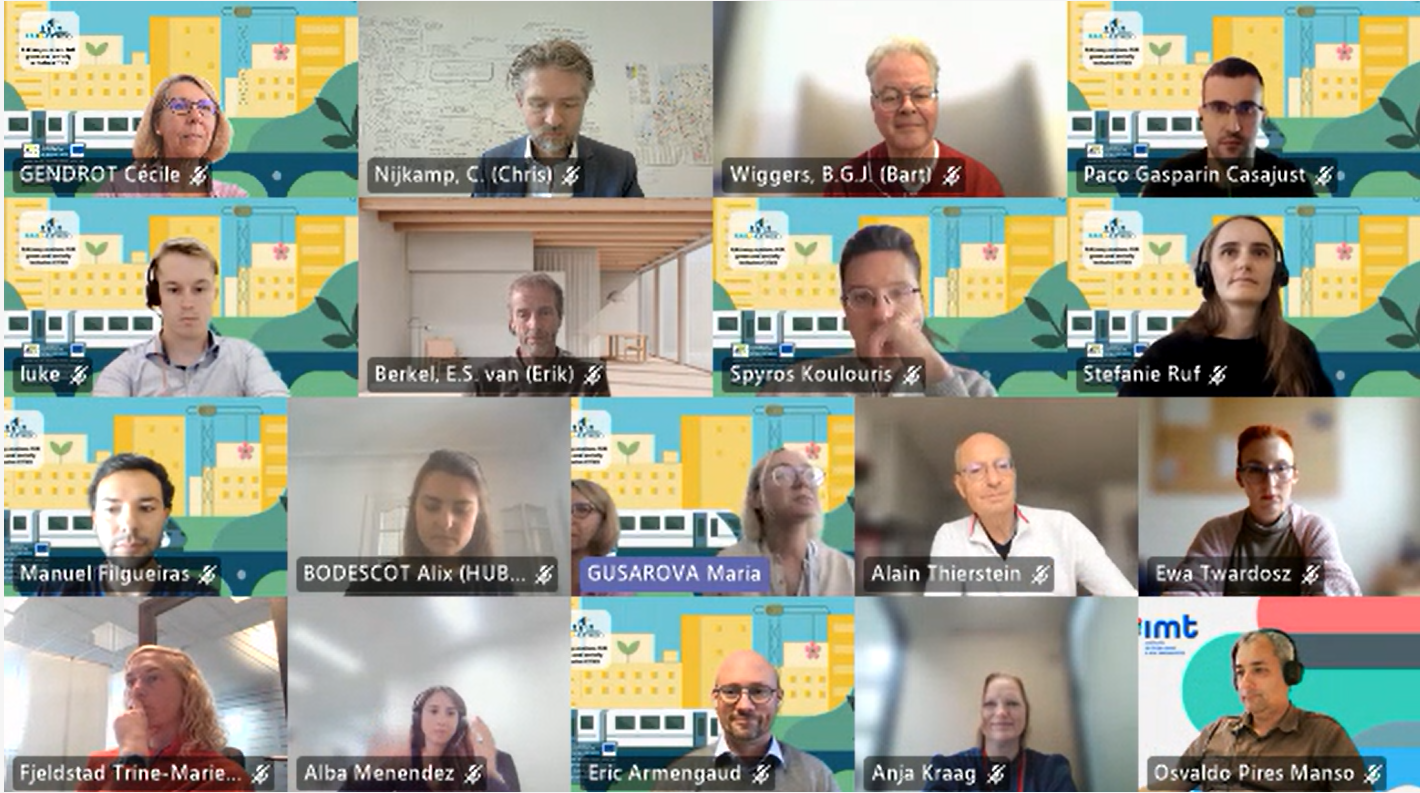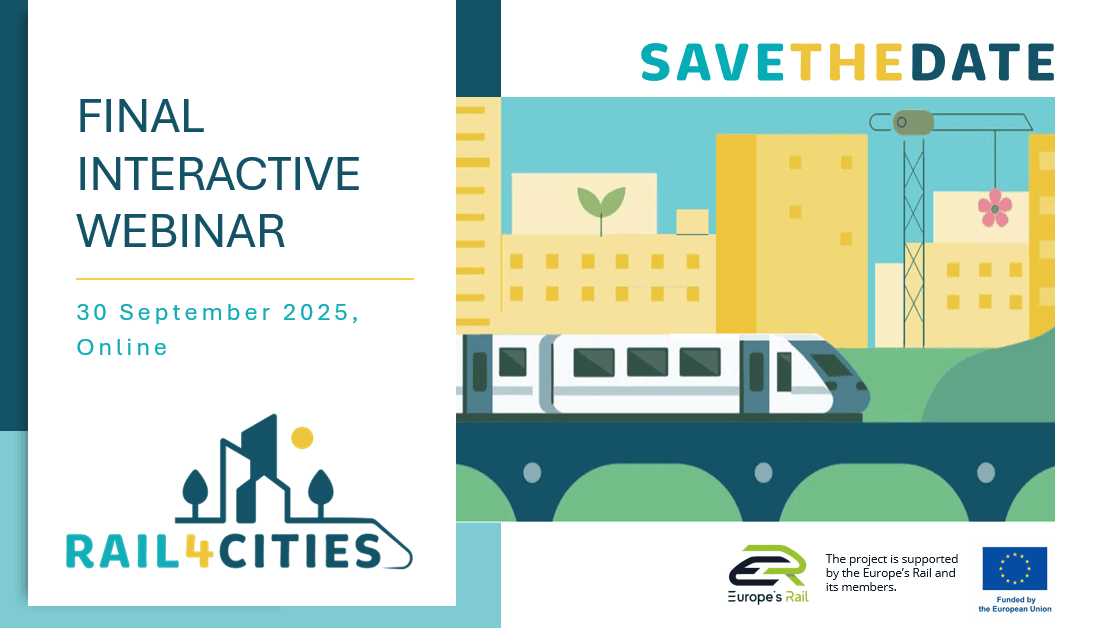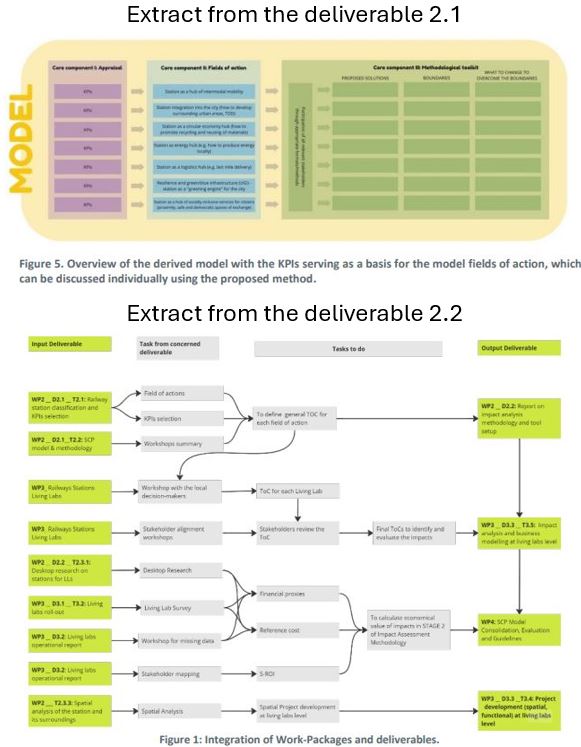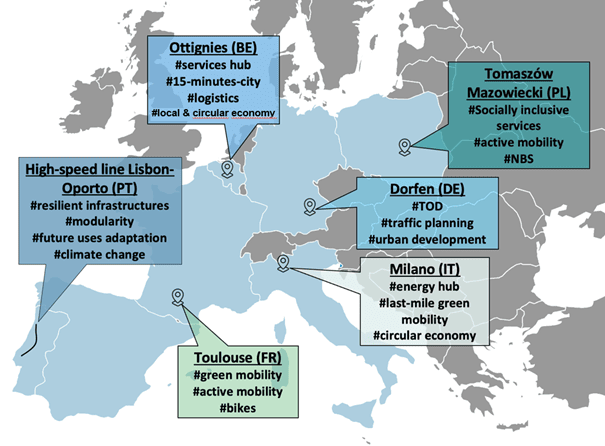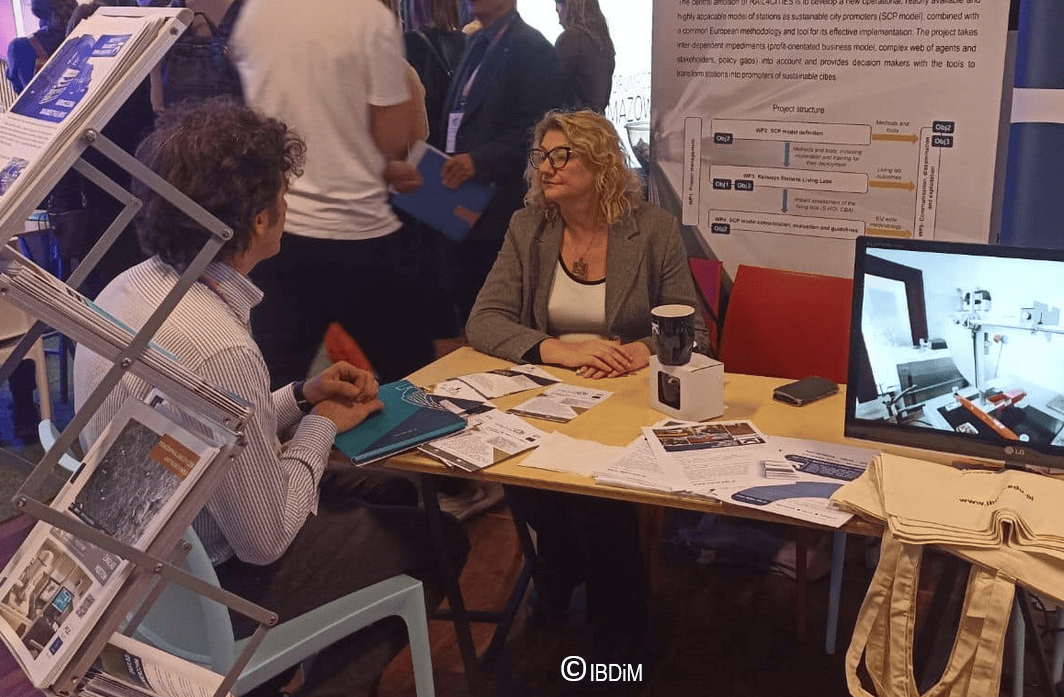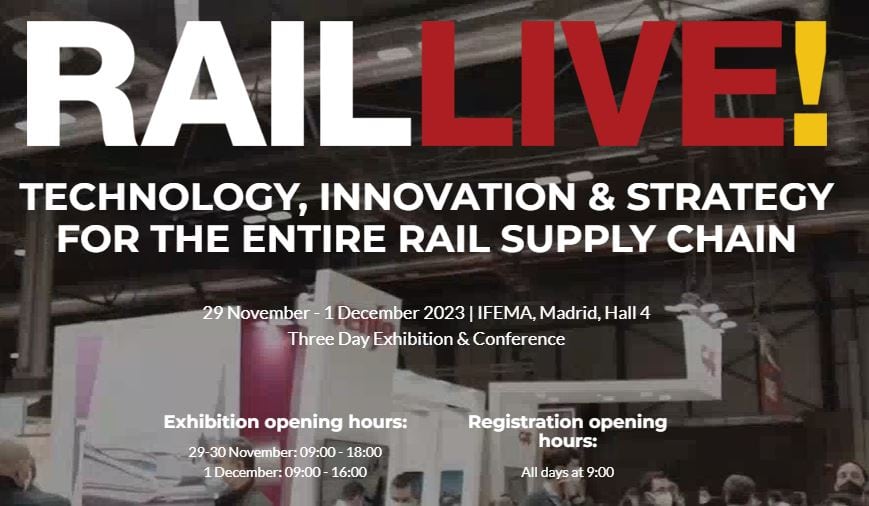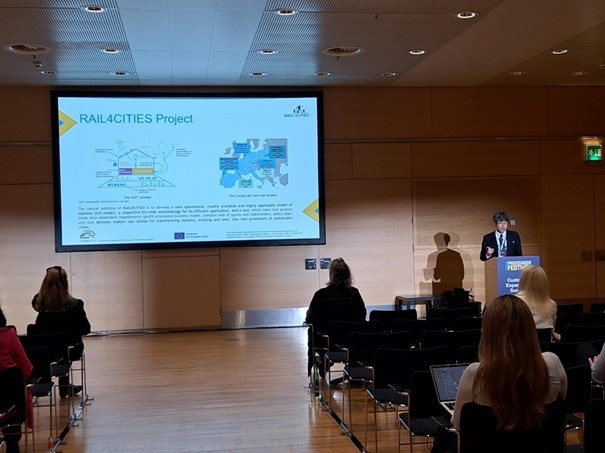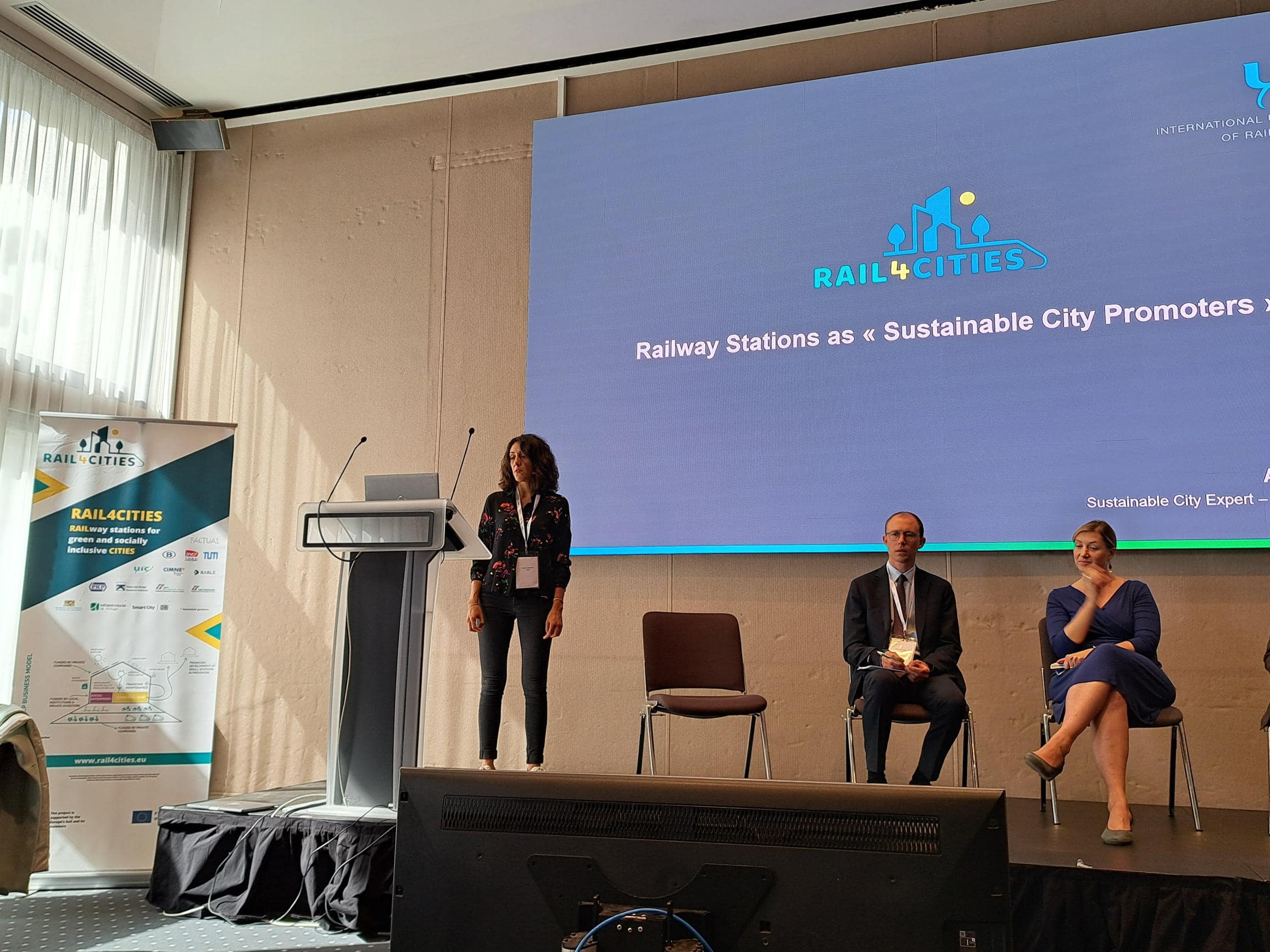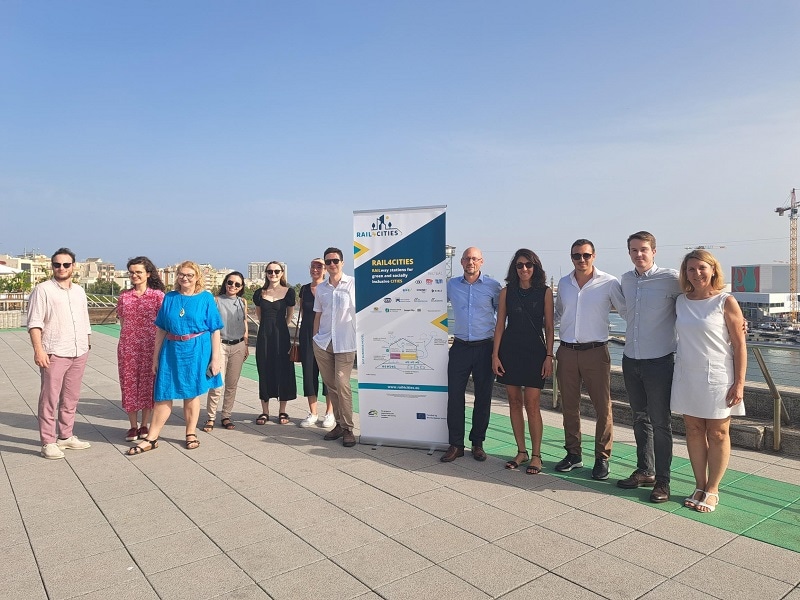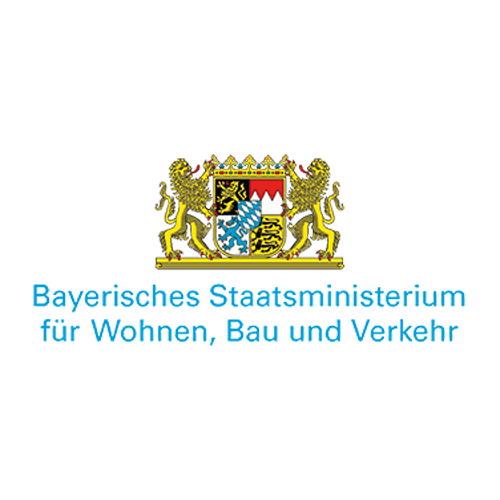RAILway stations FOR green and socially inclusive CITIES
Railway stations hold a unique position in the urban landscape: they not only act as complex nodes of mobility and transport, but also as public places that can be seen as integral elements of the city. Consequently, stations have a decisive impact on their urban surroundings as places of everyday life, affecting all stakeholders including citizens and the environment.
Project objectives
The central ambition of RAIL4CITIES is to develop a new operational, readily available and highly applicable model of stations as sustainable city promoters (SCP model), combined with a common European methodology and tool for its effective implementation. The project takes inter-dependent impediments (profit-orientated business model, complex web of agents and stakeholders, policy gaps) into account and provides decision makers with the tools to transform stations into promoters of sustainable cities.
Project structure
Work programme 1: Project Management, FACTUAL
Work programme 2: SCP Model Definition, TUM
Work programme 3: Railways Stations Living Labs, FACTUAL
Work programme 4: SCP Model Consolidation, Evaluation and Guidelines, CIMNE
Work programme 5: Communication, Dissemination and Exploitation, UIC
Facts and figures
- Project budget: 700 000 €
- Duration: 24 months
- Project start date: 01/07/2023
- Project end date: 30/06/2025
- Partners: 14 partners from 7 countries
- Project coordinator: Factual Consulting SL
- Work programme: HORIZON-ER-JU-2022
- Grant agreement: No 101121703
The project is supported by the Europe’s Rail and its members.
Views and opinions expressed are however those of the author(s) only and do not necessarily reflect those of the European Union or Europe’s Rail Joint Undertaking. Neither the European Union nor the granting authority can be held responsible for them.
Implementation approach
The model will be applied to 5 living labs addressing the stations’ transformation into hubs of green and active mobility (FR), energy hubs (IT), towards Transit Oriented Development (DE), into a socially-inclusive services hub with using Nature Based Solutions (PL) and services hubs enabling the 15-minute city and circular economy (BE). This will be enhanced by 3 case-studies from the high-speed rail line from Lisbon to Oporto (PT) to study the resilience of infrastructures for both adaptation of spaces to new future uses, and adaptation to climate-change issues and health crises.
Follow us on social media
News and events
Videos
Deliverables
| Work Package | Deliverable number | Deliverable name | Lead partner | Delivery date | Dissemination level |
|---|---|---|---|---|---|
| 1 | 1.1 | RAIL4CITIES Project Handbook | FACTUAL | M03 | Sensitive |
| 1 | 1.2 | Data management plan | FACTUAL | M06/M24 | Sensitive |
| 1 | 1.3 | Innovation report | TUM | M24 | Public |
| 2 | 2.1 | Report on railway station model and SCP model | TUM | M06 | Public |
| 2 | 2.2 | Report on impact analysis methodology setup | CIMNE | M08 | Public |
| 2 | 2.3 | Report on placemaking activities at Living Labs | BABLE | M24 | Public |
| 3 | 3.1 | Methodology and guideline for living labs | BABLE | M06 | Sensitive |
| 3 | 3.2 | Living labs operational report | FACTUAL | M18 | Sensitive |
| 3 | 3.3 | Report on open contest and living labs impact analysis | CIMNE | M18 | Sensitive |
| 4 | 4.1 | EU-wide SCP methodology | TUM | M24 | Public |
| 4 | 4.2 | Consolidated impact analysis tool | CIMNE | M24 | Public |
| 5 | 5.1 | Intermediate dissemination, communication and exploitation plan | UIC | M06 | Sensitive |
| 5 | 5.2 | Report on communication and exploitation activities, sustainability concept | UIC | M24 | Sensitive |
Publications & Tools
Consortium
With 14 partners from 7 European countries, further supported by 9 institutions through letters of support, the RAIL4CITIES consortium and ecosystem integrates the relevant stakeholders from universities, industry, government and the public, and is therefore in the position to design, evaluate and publish a EUwide model for transforming existing stations or designing new ones into socio-technical systems operating as city’s greening engines for the surrounding environment, and new urban hubs aggregating multiple services for the users and its citizens.
